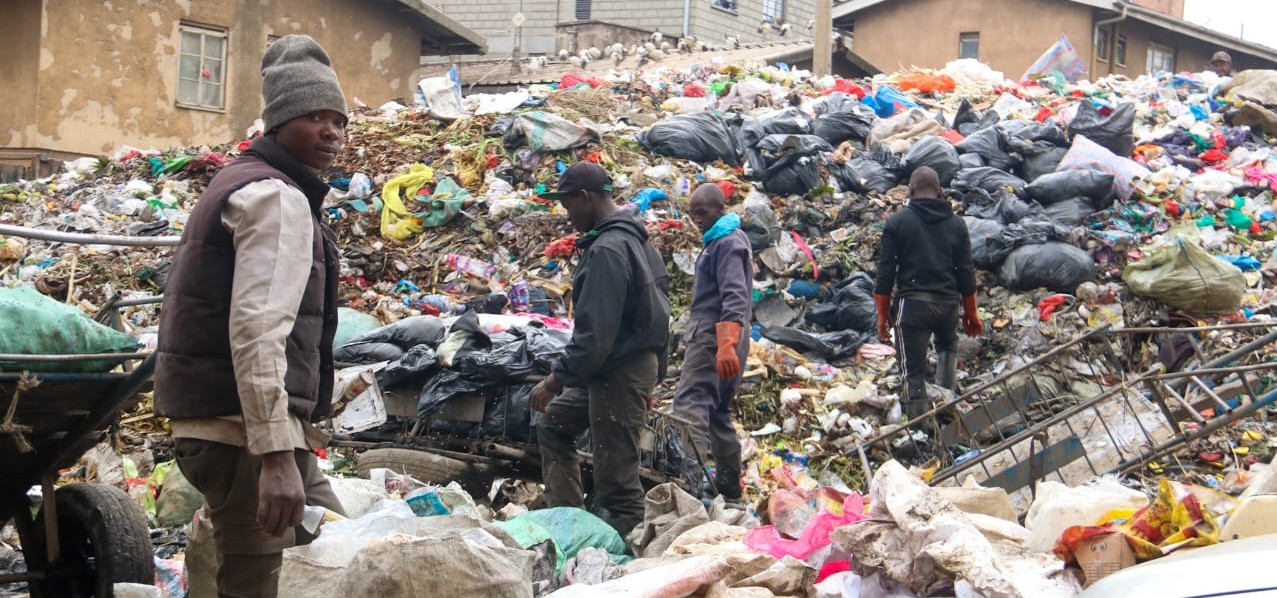NEMA gives counties 21-day ultimatum to enforce waste segregation or risk penalties

All waste generators are required to separate waste at the point of origin, while transporters are required to carry only segregated waste.
County governments have been given 21 days to comply with new waste management regulations requiring segregation at source, with the National Environment Management Authority (NEMA) warning that failure to act could attract fines, imprisonment, or both.
The authority said all counties must reorganise dumpsites, provide infrastructure for segregated waste and enforce collection in line with the Sustainable Waste Management Act.
More To Read
- Vehicle emissions, burning hospital waste now Africa’s biggest air pollution threats, experts warn
- Where did the money go? Senators demand full breakdown of Sh1.6 billion Dandora waste project
- DPP orders probe into waste dumping at Kenya Power premises
- Eastleigh struggles with garbage crisis during festive season
- New app seeks to help tackle persistent garbage menace in Mombasa
- Kamukunji youth mint cash from new waste management initiative
“Take notice that all county governments are required and are hereby directed to, within 21 days, accelerate the transition towards a circular economy in waste management by facilitating segregation of waste at source and in transit by reorganising dumpsites accordingly and giving effect to sections 9, 12, 16, 17 and 21 of the Sustainable Waste Management Act,” NEMA Director General Mamo Mamo said in a notice.
The Sustainable Waste Management Act, signed into law on July 8, 2022, is anchored on the principle of waste reduction and recovery. Mamo stressed that all waste generators must separate waste at the point of origin, while transporters are required to carry only segregated waste. Counties are mandated to provide the necessary infrastructure to promote segregation.
Under the Waste Management Regulations 2024, waste must be stored in colour-coded bins: green for organic waste, black for general waste and blue for recyclables. Transporters are expected to move only segregated waste.
“Segregating waste makes sorting, recycling, reusing and reducing waste easier. Much less goes into landfills,” Mamo said.
The directive follows previous notices issued on December 19, 2024, and June 18, 2025, which instructed county secretaries to reorganise dumpsites, including setting aside separate reception areas for organic waste, general waste, residual waste from material recovery facilities and landfills for unrecoverable waste.
Under the law, individuals who fail to segregate household waste face fines of Sh20,000, imprisonment for six months, or both. Waste service providers violating the regulations risk fines of up to Sh50,000, imprisonment for six months, or both.
The circular economy plan specifies that only five per cent of waste will go to landfills, 30 per cent will be recycled, 60 per cent converted into manure and five per cent incinerated. Counties must also enact legislation in consultation with the national government, the public, and other stakeholders, focusing on sustainable waste management, including collection, separation, treatment, processing, recovery and sanitary disposal.
The law enforces Extended Producer Responsibility (EPR), making manufacturers accountable for the lifecycle of their products, including recycling and disposal. Materials subject to EPR include batteries, plastics, electronics, pharmaceuticals, paint, textiles, tyres, automotive products and agricultural chemicals.
“The Authority remains at liberty to invoke the provisions of section 27 of the Sustainable Waste Management Act on compliance and enforcement. We remain fully committed to working with all stakeholders to ensure a clean, healthy, and sustainable environment for present and future generations,” the Authority said.
Top Stories Today















































